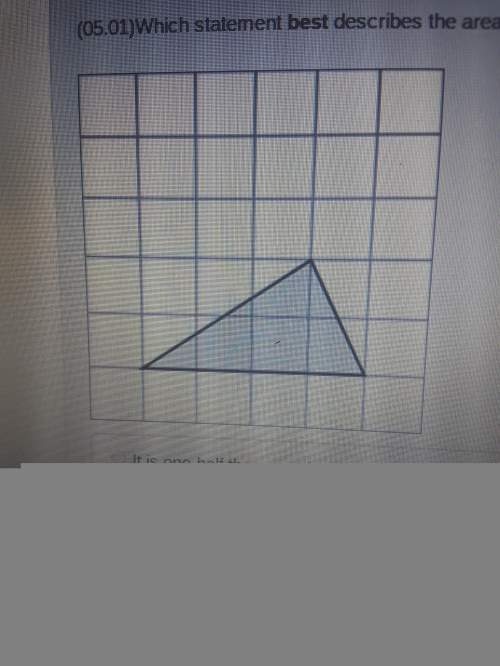
Mathematics, 14.01.2020 13:31 edgartorres5123
Will the opposite of a number always, sometimes, or never be greater than the number itself? explain your reasoning.

Answers: 1


Other questions on the subject: Mathematics

Mathematics, 21.06.2019 19:00, thegreentnt5025
1. which of the following algebraic equations is equivalent to ? x^n = a a^n = x a^x = n x^a = n 2. 16^1/4= 1/2 2 4 3. (-36)^1/2= -6 1/6 no real number 4. 8^2/3= 4 8 16√2 )^5/2= 7,776 1/7,776 no real number 6. m ^ the square root of a^2m simplified is: 7. the square root of 3^3 times the square root of 2 simplified and in radical form is:
Answers: 2

Mathematics, 21.06.2019 19:00, naomicervero
Four individuals pool money together to start a new business and agree to split the profits equally. n invests $6,000, x invests $2,000, y invests $8,000 and z invests $4,000. if the profits for the first month were $100,000, y receives than if the profits were divided in proportion to how much they invested.
Answers: 3

You know the right answer?
Will the opposite of a number always, sometimes, or never be greater than the number itself? explai...
Questions in other subjects:

Mathematics, 25.02.2022 05:30

Business, 25.02.2022 05:30








Mathematics, 25.02.2022 05:30




